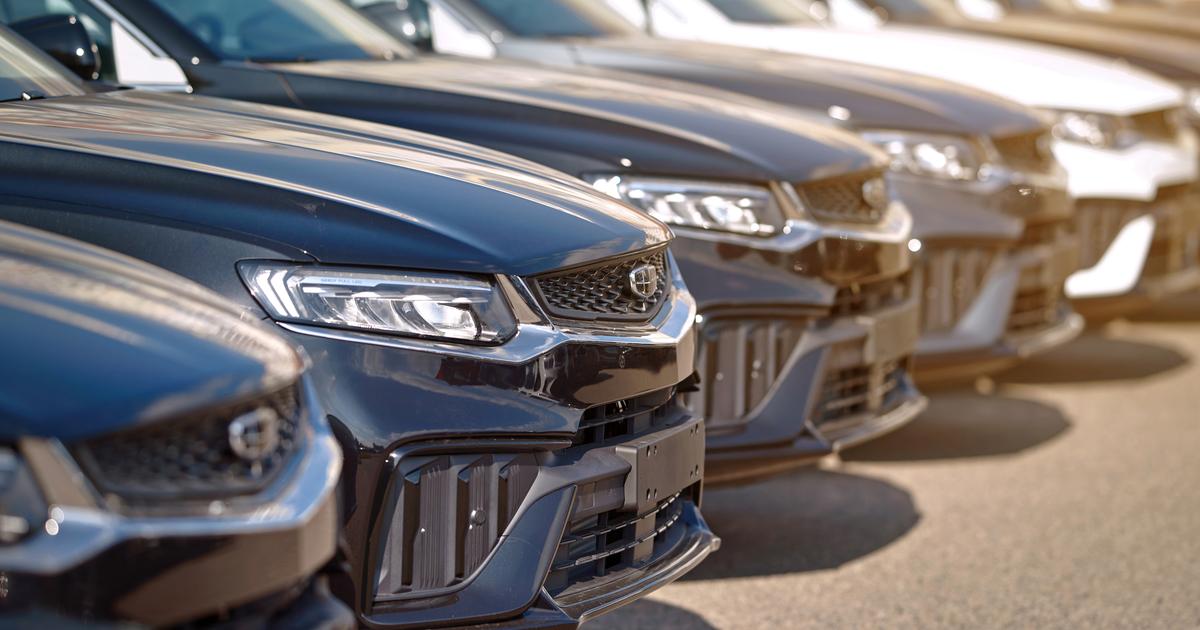Should we sanction companies that do not green their vehicle fleet as much as the law requires?
The NGO Transport & Environment (T&E), which campaigns for the decarbonization of transport, has just published the second edition of its study on the electrification of companies' vehicle fleets.
The results are “overwhelming”, reports the NGO: “
In 2023, the vast majority (60%) of companies targeted by the law will not respect these quotas
”.
The mobility orientation law (LOM), which came into force in December 2019, provided that, from January 2022, companies which have more than one hundred light vehicles in their automobile fleet should integrate at least 10% of “low emission” models. » - i.e. less than 50g CO2 per kilometer - 100% electric or plug-in hybrid on their total automobile order over the course of a year.
This threshold rose to 30% for communities or public companies and to 50% for state services.
Two years later, the account is still not there.
According to the T&E study, large companies are the worst performers in the class.
If in 2023, 16% of new vehicles purchased in France were electric, it is largely thanks to households (22%), while 11% were purchased by companies and 8% by targeted “large companies”. by the law.
“
This small group of companies nevertheless has a major influence on the automobile market
,” recalls the NGO.
In 2023, they registered or re-registered 1,492,138 light vehicles (i.e. 21% of the entire automobile flow for the year), including 1,227,409 new vehicles (i.e. 61% of all new light vehicles sold last year).
» The association points out the consequences of too timid commitment from companies.
“
They are the main driver of the transition
,” observes Léo Larivière, of Transport and Environment.
Indeed, once their leasing contract has expired, companies return their vehicles to the rental companies who then send them to the second-hand market, the market favored by individuals.
This market is more than three times larger than the new market.
In the family of large groups, T&E names the bad students: SNCF, Carrefour, Air Liquide, Illiad have integrated only between 1% and 4% of electric vehicles in their fleet.
The first in the class are called La Poste, EDF, Hertz, Spie... They have registered between 46% and 60% electric vehicles in 2023.
What will happen in the coming years when the more ambitious electrification levels provided for by the LOM law come into force?
Since January 1, companies with at least one hundred vehicles are supposed to order 20% of low-emission models and the threshold will increase to 35% in 2027 and 50% in 2030. But the law has not provided for any sanctions when electrification quotas are not respected.
Transport & Environment and several other associations support the bill presented at the end of November, and at the end of January in a modified version, by Damien Adam, Renaissance deputy for Seine-Maritime.
It proposes not only sanctions but also to increase more quickly the share of very low emission vehicles in fleets: 30% from 2025 and 40% in 2026. Ten more points being added each year to reach 95% in 2032. “
It seemed logical to me that we let the economic sector appropriate these regulations before taking sanctions,”
explains Damien Adam to Le
Figaro
.
Today, electrification has reached a sufficient level of maturity so that the obligation set by law can be respected.
»
The MP also proposes excluding from the system plug-in hybrids, widely adopted by companies.
But the conditions of use of these vehicles, weighed down by their battery and which operate on the thermal engine when it is not recharged regularly, are often not optimal, which increases their level of CO2 emissions.
The reform project supported by Damien Adam proposes that “reporting” of the number of vehicles integrated into fleets be made compulsory for companies and that sanctions be applied when they do not respect the thresholds set by law.
Administrative fines of up to 10,000 euros could be imposed in the event of non-compliance with declarations.
A fine of up to 5,000 euros per low-emission vehicle missing the target could also constrain companies.
Finally, the most refractory could be excluded from public markets.
“
It’s not a question of throwing stones at them, but of pushing companies to make it an internal priority that is managed to avoid sanctions
,” adds the MP.
If this reform were adopted, it would reduce emissions from the automotive sector by 57 million tonnes of CO2 between 2025 and 2035, T&E estimates.
It would also lead to 3.7 million more electric vehicles being put on the road than the current trend predicts.
But the NGO's most convincing argument is the cost of using very low-emission vehicles.
“
Taking into account all automobile costs (depreciation of the purchase or monthly rent, taxation, maintenance, insurance, fuel or electricity, etc.), electric motorization is today the cheapest on the market
,” concludes the association.
Regulations concerning the heaviest commercial vehicles should, however, be relaxed due to a lack of sufficient supply of low-emission trucks on the market.

